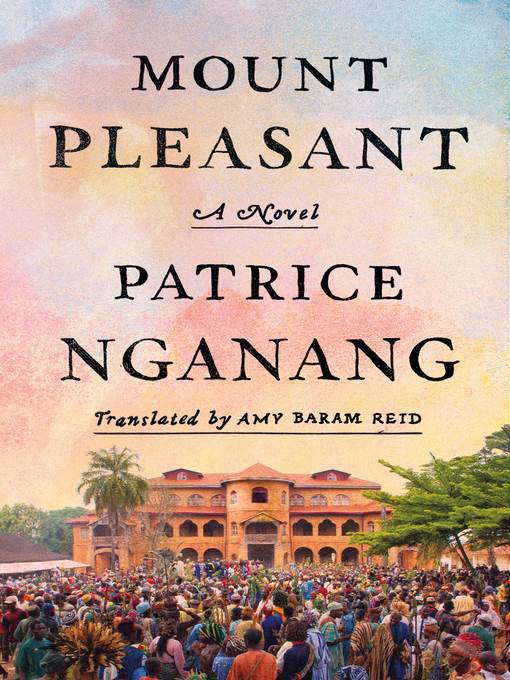
Mount Pleasant
A Novel
کتاب های مرتبط
- اطلاعات
- نقد و بررسی
- دیدگاه کاربران
نقد و بررسی

February 29, 2016
Nganang, born in Cameroon, brings to life his home country, one rocked by the forces of colonialism—first the Germans, then English, then French—through the strange, poetic, and fantastical memories of Sara, “the doyenne of Mount Pleasant.” In 1931 Sara, at the age of nine, is given by her mother to Sultan Njoya, the Bamum leader exiled by the French, and taken to the community at Mount Pleasant. Bertha, an academic in the present, is researching Cameroon’s history when she meets Sara, who had an influential Bertha in her past: breaking an eight-decade silence, Sara recounts how she came under the tutelage of Bertha, teacher and keeper of Sultan Njoya’s wives, and becomes transformed by her new master into the boy Nebu, Bertha’s son. Sara is physically transformed, dressing like a boy and stunting her breast growth with scalding rocks. The narrative is also transformed, allowing Nganang to show the turbulence of early Cameroon through the eyes of Bertha’s original son Nebu. Nganang’s story weaves from past to present, from one genre-bending tale to the next—a sculptor concerned with Platonic beauty, a man in a coma awakening to wildlife in a mystical waltz, a spirit haunting a cocoa plantation—from memory to dreams, from the first Nebu to the second, from history to fantasy: “paths that twisted and turned through unexpected lives, a paradise of surprises.” Readers will slowly uncover a history of Cameroon that parallels, mirrors, and subverts history in service of Nganang’s brilliant mythmaking.

Starred review from February 1, 2016
Cameroonian writer Nganang delivers a modern epic, tinged with liberal doses of magical realism, of life in his country's colonial era. Mount Pleasant, in the highlands of Yaounde, is a story-swathed place where the magical and inexplicable can happen. It is the residence in exile, the Palace of All Dreams, of the learned Sultan Njoya, who has just traded one colonial master for another. "I'm like a woman, and the whites are like men," Njoya laments. "What can I do except obey?" That note of gender shifting is important, for when 9-year-old Sara enters the Sultan's harem, its sharp-tongued supervisor, Bertha, inexplicably sees in the young girl an incarnation of her late son, Nebu, and immediately reclassifies her as a boy, something that seems to cause no stir even as Sara is increasingly remade into the lost boy: "Yes," Bertha thinks, "it was up to her to coat this child's lips with words of love that would replace Nebu's tragic story." Getting to that "tragic story" draws the reader into many other stories, funny and sad and improbable, even as we puzzle out why Bertha should be searching for her dead son in the bodies of young girls. In the end, Nganang offers a fine celebration of storytelling along with a thinly veiled critique of colonialism. Under the best of circumstances, Nganang's story is not easy to follow; it summons a wealth of African history and cultural allusion that most readers will not have. Still, as with Garcia Marquez, the trick is to suspend disbelief and then some and let the narrative sweep away any scruples. Therein lies depth of observation and precise description: recalls Sara, "She'd hear the syllables of her name ricochet off Yaounde's seven hills and then roll through the mud of the valley before they were lost in the heart of the rain, in the joyous laughter of the girls her age." An elegantly drawn and engaging world of a sort unknown to most readers--but one they'll be glad to have visited.
COPYRIGHT(2016) Kirkus Reviews, ALL RIGHTS RESERVED.

November 1, 2015
In 1930s Cameroon, a young girl is mistaken for a dead artist and raised as his replacement in a story spanning decades and verging on surrealism.
Copyright 2015 Library Journal, LLC Used with permission.

























دیدگاه کاربران